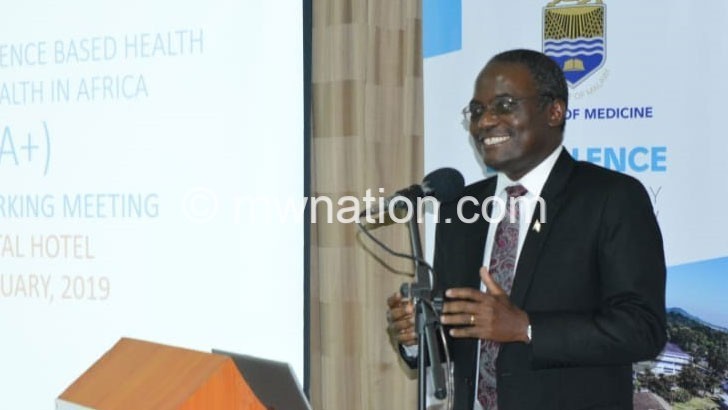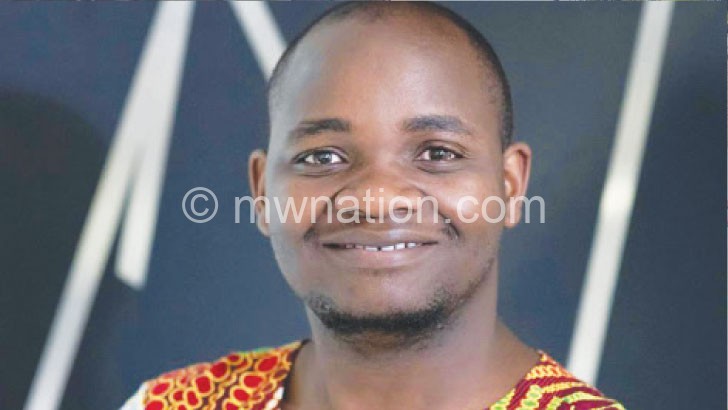Painful wait for vaccines
Poor planning coupled with high dependency on donors have exposed gaps in Malawi’s response to Covid-19 with government uncertain on the exact date the next consignment of the vaccine from donors will arrive.
In the meantime, Malawians will have to painfully wait for either the first or second jab and health experts have appealed to them to follow all Covid-19 protocols as that is the only remedy at the moment.

In an interview yesterday, Ministry of Health Principal Secretary Dr. Charles Mwansambo said he was not certain on the exact date, but said Malawi is banking on the Covax Facility—a multi-donor financing initiative for the Covid-19 vaccines to poor countries—to deliver the next consignment between July and August.
He said another consignment from the Group of Seven (G7) highly industrialised countries may be delivered earlier than the Covax package.
Mwansambo said: “There are two lots coming; a scheduled one from the Covax Facility coming between July and August, but we are yet to get confirmation on the exact date. The other one is from the G7 countries donated to the Covax Facility which will also come.”

He said that all things being equal, government will first utilise the allocation from the Covax Facility which is providing vaccines for 3.8 million people, representing 20 percent of the population.
Mwansambo allayed fears of complications for those who got the first jab and are due for the second jab amid scarcity of the vaccines in the country, saying: “There is no need to panic because science has it that the longer the period, the better the response to the vaccine. But people still need the two doses for full protection.”
Africa will be prioritised for the G7’s pledged 870 million doses of Covid-19 vaccine, according to the World Health Organisation (WHO).

But despite Mwansambo’s assurances, Physicians Assistants Union of Malawi (Paum) president Solomon Chomba said the delayed delivery portrays a lack of planning by the Ministry of Health. He said the development was a threat to the response rate of Malawians to the pandemic.
He said: “The Ministry of Health has to come out clear to Malawians on what has led to this situation and what mechanism they have put in place to urgently solve the mess at hand.”
In a separate interview, National Organisation of Nurses and Midwives in Malawi president Shouts Simeza also said the delay was resulting in a painful wait, especially for those who already got the first jab and were anxious to get their last jab.
He said: “We are vulnerable. We are at risk, especially those that had their first jabs and their second jabs are due. The potency of the vaccine relies on continuity, so if the effectiveness of the vaccine lasts for the defined time as it was indicated initially, it means those expecting the second jab will have to painfully wait for it.
“We never know when and how far we are in terms of mobilising the second consignment, meaning those who are due for the second jab have to painfully wait for it.”
On his part, epidemilogist Dr. Titus Divala said in the absence of vaccines, there was need to return to the traditional methods of protection from Covid-19, including restrictions on movement and avoiding indoor meetings or gatherings.
He said: “To date, no other Covid-19 intervention has performed better than the vaccine, therefore, if our battle against this monster is to be strengthened, we need to do our best and get some doses here soon.”
Sounding low, Society of Medical Doctors president Dr. Victor Mithi said the situation was critical and urged people to follow all Covid-19 protocols.
He said adherence to Covid-19 protocols was critical, especially in the face of increasing transmission of local cases and the absence of vaccines.
Mithi said: “People need to understand that we are in a critical situation. It’s not only Malawi, it’s all over. The debatable point is whether it is the problem of our nation or that of manufacturers. It is an issue of supply [and] demand.
“You can only continue to wait on the line [as a country] until it is your turn, regardless of whether you have the money or not. We sympathise with the people, we [wish] the vaccines were in as early as yesterday, but we have to wait until we get them.”
He said that while the protection does not go down immediately, it still goes down after some time; hence, the need for the country to arrange to have the jabs.
But in his response, Mwansambo stressed that the challenges facing Malawi were beyond finances. He said the situation is due to the scramble for the vaccine owing to its high demand on the global scene which makes supply scanty.
He said: “People also need to understand that the problem is not the money, but the global supply of the vaccine. This needs to come out clear, it’s all well planned for, but the happenings in India did affect the deliveries of the doses.
“It looks as if people didn’t plan well, but everything was planned well, and deliveries were all on paper until the second wave hit India which is the major producer of vaccines.”





